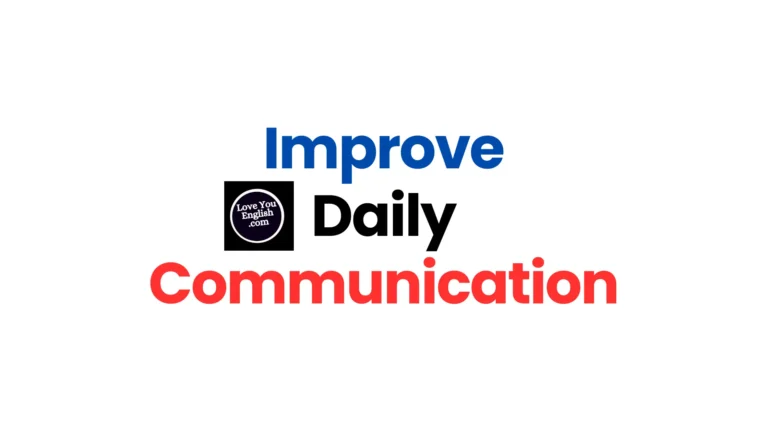How to Write a Resignation Letter for a Career Change
How to Write a Resignation Letter for a Career Change
Starting a new job journey can be both thrilling and tough.
After deciding to switch careers, one of the key things to do is to leave your current job professionally and respectfully.
Writing a good resignation letter is important because it helps you keep a good relationship with your soon-to-be ex-boss and makes your career change smoother.
In this post, I’ll tell you how to write a great resignation letter that fits perfectly for when you’re changing careers.
Recognizing the Significance of a Resignation Letter
Before you start writing your resignation letter, it’s really important to know why it’s necessary, especially when you’re switching jobs:
a) Showing respect: A resignation letter is a common practice in many workplaces and demonstrates respect for your boss and coworkers.
b) Keeping records: It serves as an official note of your decision to leave, which is important for human resources and your job history.
c) Keeping connections: A nicely written letter can help maintain good relationships, which might be useful even as you move on to a new job.
d) Setting the mood: Your letter can affect how people view your departure and how they remember you at your current job.
e) Clear communication: It clearly states your plans, so there’s no confusion about what you’re doing.
Key Parts of a Resignation Letter for a Career Change
When you write a resignation letter because you’re changing careers, there are some key parts you should include to make it professional and effective:
a) Formal heading: Start with your name, address, and the date, then add the recipient’s name and the company’s address.
b) Clear resignation statement: Clearly say that you are resigning and mention your last day of work.
c) Brief reason for leaving: Say that you are leaving to follow a new career path, but don’t go into too much detail.
d) Thankfulness: Show appreciation for the opportunities and experiences you’ve had at the company.
e) Offer to help: Suggest that you can assist with the transition, like training someone to take your place.
f) Positive attitude: Keep a hopeful and positive tone throughout the letter.
g) Professional ending: Finish with a formal closing and your signature.
Step-by-Step Guide to Writing Your Resignation Letter
Now, let’s break down the process of writing your career change resignation letter into manageable steps:
Step 1:
Start with a formal header Begin your letter with your contact information, the date, and your employer’s contact information.
This gives the letter a professional appearance and ensures it can be properly filed.
Example:
[Your Name]
[Your Address]
[City, State ZIP Code]
[Date]
[Employer’s Name]
[Company Name]
[Company Address]
[City, State ZIP Code]
Step 2:
Address the letter appropriately Use a formal salutation such as “Dear [Manager’s Name]” or “Dear Mr./Ms. [Last Name]”.
If you’re unsure of the appropriate recipient, “Dear [Department] Manager” or “To Whom It May Concern” are acceptable alternatives.
Step 3:
State your intention to resign in the opening paragraph, clearly state your intention to resign and specify your last working day.
It’s standard to give at least two weeks’ notice but check your contract or company policy for any specific requirements.
Example: “I am writing to inform you of my decision to resign from my position as [Your Job Title] at [Company Name], effective [Last Working Day].”
Step 4:
Briefly explain your career change While you don’t need to provide extensive details, it’s courteous to mention that you’re leaving to pursue a new career path.
This helps your employer understand your decision and prevents any speculation or misunderstandings.
Example:
“After careful consideration, I have decided to pursue a new career opportunity in [New Field/Industry]. This decision comes as part of my long-term career goals and personal growth objectives.”
Step 5:
Express gratitude Acknowledge the positive aspects of your time with the company. Mention specific experiences, skills you’ve gained, or opportunities you’ve been given.
This helps maintain a positive relationship and leaves a good last impression.
Example:
“I am deeply grateful for the opportunities for professional and personal development that [Company Name] has provided me over the past [X years].
The skills I’ve acquired and the relationships I’ve built during my time here have been invaluable, and I will always appreciate the support and guidance I’ve received from you and the entire team.”
Step 6:
Offer assistance with the transition Demonstrate your professionalism by offering to help ensure a smooth transition.
This could include training your replacement, documenting your processes, or finishing up important projects.
Example: “To ensure a smooth transition, I am fully committed to completing my current projects and assisting in any way possible before my departure. Please let me know how I can best help in transferring my responsibilities and training my replacement.”
Step 7:
Maintain a positive tone Even if you’re excited about your new career path, keep the focus on gratitude and professionalism rather than enthusiasm about leaving.
Your goal is to leave on good terms and preserve your professional network.
Step 8:
Conclude professionally End your letter with a formal closing, followed by your signature.
If you’re submitting a hard copy, leave space for your handwritten signature above your typed name.
Example: “Thank you again for your understanding and support. I wish you and [Company Name] continued success in the future.
Sincerely,
[Your Signature]
[Your Typed Name]”
More cool topics:
- 2024 Interview Question: “Tell Me About Yourself”
- How to Ace an Interview: 15 Tips from a Career Coach
- How to Become a Digital Nomad
- How to Update Your Résumé for a Career Change
- 10 Signs of a Bad Interviewer: Red Flags in Your Job Search
Sample Resignation Letter for Career Change
Here’s a complete sample letter incorporating all the elements I’ve discussed:
[Your Name]
[Your Address]
[City, State ZIP Code]
[Date]
[Employer’s Name]
[Company Name]
[Company Address]
[City, State ZIP Code]
Dear [Manager’s Name],
I am writing to formally notify you of my decision to resign from my position as [Your Job Title] at [Company Name], effective [Last Working Day]. After careful consideration, I have decided to pursue a new career opportunity in [New Field/Industry] as part of my long-term professional development goals.
My time at [Company Name] has been incredibly rewarding, and I am grateful for the opportunities for growth and learning that I have experienced over the past [X years].
The skills I have developed and the relationships I have built during my tenure here have been instrumental in shaping my professional journey, and I will always value the support and guidance I have received from you and the entire team.
I am committed to ensuring a smooth transition of my responsibilities. I would be happy to assist in training my replacement or documenting my current processes. Please let me know how I can best support the team during this transition period.
I want to express my sincere appreciation for the opportunities I have had at [Company Name]. The experience has been invaluable, and I am thankful for the trust placed in me during my time here. While I am excited about this new chapter in my career, I will always look back fondly on my time with this company.
Thank you again for your understanding and support. I wish you and [Company Name] continued success in the future.
Sincerely,
[Your Signature]
[Your Typed Name]
Tips for Handing in Your Resignation Letter
Writing your resignation letter is just one step. How you hand it over is also really important:
a) Set up a meeting: Try to meet with your boss in person to give them the letter. This shows you care and lets you talk about it right away.
b) Get ready: Think about what questions your boss might ask and have some good answers ready.
c) Stay positive: Talk about the exciting things coming up instead of focusing on the bad parts of your current job.
d) Be polite but firm: It’s okay to say your decision is final, but do it in a nice and professional way.
e) Send a follow-up email: After your meeting, consider sending an email with your resignation letter attached to keep a record.
Common Mistakes to Avoid
When you write your resignation letter for a new job, watch out for these common mistakes:
a) Being negative: Don’t say bad things about your current job, company, or coworkers. Keep it positive and look ahead.
b) Sharing too much: It’s fine to say you’re changing careers, but don’t go into too much detail about your new job.
c) Burning bridges: You might need references later, so stay professional throughout the process.
d) Being unclear: Make sure to clearly say you’re resigning and when your last day will be to avoid any mix-ups.
e) Forgetting to help: Always offer to help with the transition, even if you think it’s not needed.
f) Using emotional language: Keep your letter straightforward and professional, without getting too emotional.
Dealing with Possible Reactions
When you resign, especially for a new career, your boss might react in different ways.
Here’s how to handle some common situations:
a) Counteroffers: Be ready for your boss to try to persuade you to stay. Have a polite but firm response ready if you’re sure about your choice.
b) When you resign, some companies might ask you to leave right away. It’s a good idea to be ready for this and have a backup plan just in case.
c) If people ask about your new job, it’s okay to share some basic info, but try not to go into too much detail about what you’ll be doing or where you’ll be working.
d) Sometimes, your boss might not take your resignation well. If that happens, stay calm and professional, and remind them that you appreciated your time at the company.
After You Hand in Your Resignation Letter
After you give your resignation letter, there are a few things you should do to make everything go smoothly:
a) Write a handover document: Make a detailed guide that explains your current projects, important contacts, and any key information your replacement will need to know.
b) Finish up your tasks: Try to complete as many of your remaining tasks as you can and make sure everything is documented properly.
c) Say goodbye in a professional way: Take a moment to say goodbye to your coworkers and thank them for the time you spent together.
d) Ask for references: If it feels right, see if your manager or coworkers would be willing to give you a reference in the future.
e) Return company items: Make sure to give back all company property, like equipment, keys, and any confidential papers.
f) Keep being professional until the end: Work hard and stay focused on your duties until your last day, so you leave a good impression.
Making the Most of Your Career Change for Future Chances
When you resign, it’s not just the end of a job; it’s the start of something new.
Your career change can be a great topic to discuss in future job interviews or when meeting new people in your field.
Here’s how to make the most of this experience:
a) Focus on transferable skills: Talk about the skills you’ve developed in your current job that will help you in your new career.
b) Show your adaptability: Changing careers shows that you can be flexible and are open to growth, which employers really appreciate.
c) Explain your decision-making: Be ready to share how you decided to switch careers, showing that you think things through and plan ahead.
d) Keep your connections: Stay in touch with your old coworkers and bosses. They can be helpful contacts even in your new job.
Conclusion
Writing a resignation letter for a career change is more than just a simple task; it’s a chance to leave your job positively while paving the way for your new career.
By following the tips in this guide, you can create a professional and respectful resignation letter that keeps your work relationships strong.
Remember, changing your career is a big decision, and how you resign can impact your professional connections and future chances.
Handle this process with care, appreciation, and professionalism, and you’ll be set up for success in your new job.
As you start this new journey, remember all the great experiences and friendships you’ve made in your current job.
Changing careers isn’t just about finishing one thing: it’s the start of something really exciting.
Wishing you the best of luck in your new job!







